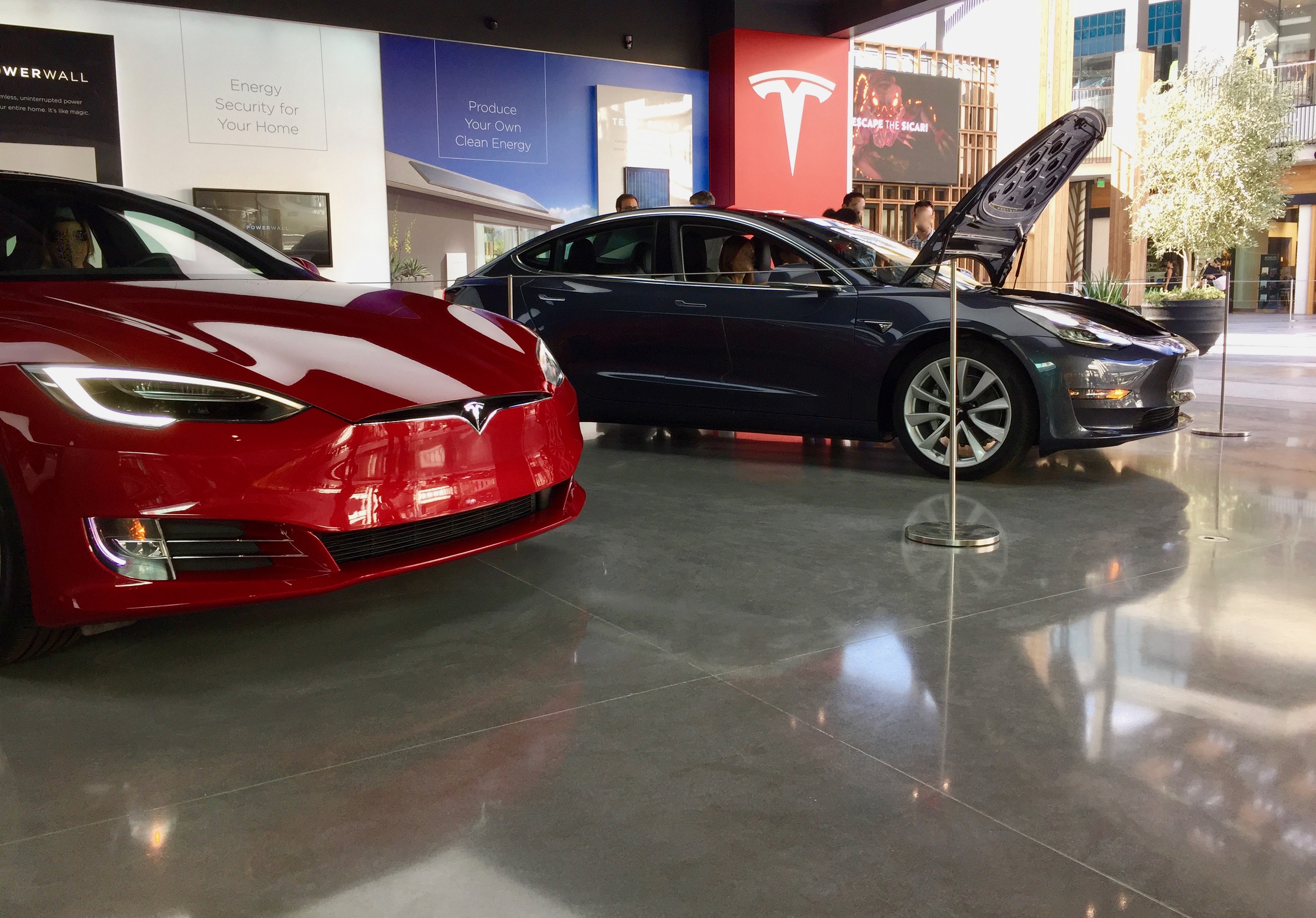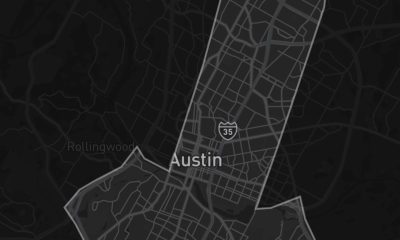

News
Tesla will designate Model 3 Performance as first test drive cars
Tesla will use the Model 3 Performance as its test drive cars for individuals interested in the compact electric car. In a recent announcement on Twitter, Elon Musk stated that Tesla is aiming to start test drives in the Model 3 Performance within 4-6 weeks.
Elon Musk’s update on Tesla’s test drive cars for the Model 3 line came as a response to an inquiry from the Model 3 Owners Club, who inquired when Canadian reservation holders can order their Model 3. Responding to the group, Musk noted that order pages for the Model 3 Performance are being rolled out over the next week. Musk further teased that test drives in the Model 3 Performance will be a “mindwarp.”
Model 3 Performance order page progressively rolling out to reservation holders over the next week or so. It’s a really great car. Not saying that lightly. Test drive is a mindwarp. Aiming to have these as our first test drive Model 3 cars in stores within 4 to 6 week’s.
— Elon Musk (@elonmusk) June 3, 2018
Prior to Musk’s announcement, Model 3 reservation holders have mostly resorted to more unconventional ways to test drive the vehicle. Some, for example, have opted to rent the car through online services such as Turo, in order to check out the electric car’s performance and functions. Others coordinate with members of the Tesla community to get in touch with existing Model 3 owners.
Tesla’s test drive cars have proven to be popular among the electric car community. Last year, it was revealed that test drives in Tesla’s South Korea branch in the Cheongdam-dong, Gangnam District in Seoul ended up with a six-month wait time, due to the number of people interested in trying out the vehicle. According to a local news report then, Tesla Korea sent emails to customers who pre-ordered the Model S 90D that test drives are being offered. With only ten test drives being conducted every day, the wait list for the Model S 90D stretched out to six months. That’s longer than the three months it took to import the Model S 90D from the United States to South Korea.
Apart from providing an update on Model 3 test drives, Musk also announced an update on Model 3 leases. According to Musk, Tesla would probably not offer Model 3 leases for 6-9 months, considering that leasing would negatively affect the company’s cash flow.
Leasing negatively effects Tesla cash flow, so we prob won’t offer Model 3 leases for 6 to 9 months. Loan financing is a better deal anyway, as bank conservatism for new car models is v conservative about residual value, but Teslas have always had strong residual value.
— Elon Musk (@elonmusk) June 3, 2018
Elon Musk has stated that Tesla would be profitable by the third or fourth quarter of 2018. With this in mind, Tesla’s decision to not offer leases for the Model 3 for the next 6-9 months is a step in the right direction. After all, when buyers purchase the Model 3, Tesla gets paid upfront; whereas the company gets paid over time when the vehicle is leased. Tesla’s focus on profitability and keeping its cash flow positive was also highlighted by Musk recently, when he discussed why the $35,000 standard range RWD Model 3 is not being produced yet.
While Musk has stated that test drives in the Model 3 Performance would be a “mindwarp,” another Tesla electric car would most definitely have test drives that are even more extreme. Last month, while responding to a Tesla fan on Twitter, Musk revealed that test drives for the next-generation Roadster would be offered “towards the end of next year.” With 10,000 Nm of torque, a top speed beyond 250 mph, and a 0-60mph time of 1.9 seconds, a test drive in the all-electric supercar would undoubtedly be far beyond ludicrous.
News
Tesla launches in India with Model Y, showing pricing will be biggest challenge
Tesla finally got its Model Y launched in India, but it will surely come at a price for consumers.

Tesla has officially launched in India following years of delays, as it brought its Model Y to the market for the first time on Tuesday.
However, the launch showed that pricing is going to be its biggest challenge. The all-electric Model Y is priced significantly higher than in other major markets in which Tesla operates.
On Tuesday, Tesla’s Model Y went up for sale for 59,89,000 rupees for the Rear-Wheel Drive configuration, while the Long Range Rear-Wheel Drive was priced at 67,89,000.
This equates to $69,686 for the RWD and $78,994 for the Long Range RWD, a substantial markup compared to what these cars sell for in the United States.
🚨 Here’s the difference in price for the Tesla Model Y in the U.S. compared to India.
🚨 59,89,000 is $69,686
🚨 67,89,000 is $78,994 pic.twitter.com/7EUzyWLcED— TESLARATI (@Teslarati) July 15, 2025
Deliveries are currently scheduled for the third quarter, and it will be interesting to see how many units they can sell in the market at this price point.
The price includes tariffs and additional fees that are applied by the Indian government, which has aimed to work with foreign automakers to come to terms on lower duties that increase vehicle cost.
Tesla Model Y seen testing under wraps in India ahead of launch
There is a chance that these duties will be removed, which would create a more stable and affordable pricing model for Tesla in the future. President Trump and Indian Prime Minister Narendra Modi continue to iron out those details.
Maharashtra Chief Minister Devendra Fadnavis said to reporters outside the company’s new outlet in the region (via Reuters):
“In the future, we wish to see R&D and manufacturing done in India, and I am sure at an appropriate stage, Tesla will think about it.”
It appears to be eerily similar to the same “game of chicken” Tesla played with Indian government officials for the past few years. Tesla has always wanted to enter India, but was unable to do so due to these import duties.
India wanted Tesla to commit to building a Gigafactory in the country, but Tesla wanted to test demand first.
It seems this could be that demand test, and the duties are going to have a significant impact on what demand will actually be.
Elon Musk
Tesla ups Robotaxi fare price to another comical figure with service area expansion
Tesla upped its fare price for a Robotaxi ride from $4.20 to, you guessed it, $6.90.

Tesla has upped its fare price for the Robotaxi platform in Austin for the first time since its launch on June 22. The increase came on the same day that Tesla expanded its Service Area for the Robotaxi ride-hailing service, offering rides to a broader portion of the city.
The price is up from $4.20, a figure that many Tesla fans will find amusing, considering CEO Elon Musk has used that number, as well as ’69,’ as a light-hearted attempt at comedy over the past several years.
Musk confirmed yesterday that Tesla would up the price per ride from that $4.20 point to $6.90. Are we really surprised that is what the company decided on, as the expansion of the Service Area also took effect on Monday?
But the price is now a princely $6.90, as foretold in the prophecy 😂
— Elon Musk (@elonmusk) July 14, 2025
The Service Area expansion was also somewhat of a joke too, especially considering the shape of the new region where the driverless service can travel.
I wrote yesterday about how it might be funny, but in reality, it is more of a message to competitors that Tesla can expand in Austin wherever it wants at any time.
Tesla’s Robotaxi expansion wasn’t a joke, it was a warning to competitors
It was only a matter of time before the Robotaxi platform would subject riders to a higher, flat fee for a ride. This is primarily due to two reasons: the size of the access program is increasing, and, more importantly, the service area is expanding in size.
Tesla has already surpassed Waymo in Austin in terms of its service area, which is roughly five square miles larger. Waymo launched driverless rides to the public back in March, while Tesla’s just became available to a small group in June. Tesla has already expanded it, allowing new members to hail a ride from a driverless Model Y nearly every day.
The Robotaxi app is also becoming more robust as Tesla is adding new features with updates. It has already been updated on two occasions, with the most recent improvements being rolled out yesterday.
Tesla updates Robotaxi app with several big changes, including wider service area
News
Tesla Model Y and Model 3 dominate U.S. EV sales despite headwinds
Tesla’s two mainstream vehicles accounted for more than 40% of all EVs sold in the United States in Q2 2025.

Tesla’s Model Y and Model 3 remained the top-selling electric vehicles in the U.S. during Q2 2025, even as the broader EV market dipped 6.3% year-over-year.
The Model Y logged 86,120 units sold, followed by the Model 3 at 48,803. This means that Tesla’s two mainstream vehicles accounted for 43% of all EVs sold in the United States during the second quarter, as per data from Cox Automotive.
Tesla leads amid tax credit uncertainty and a tough first half
Tesla’s performance in Q2 is notable given a series of hurdles earlier in the year. The company temporarily paused Model Y deliveries in Q1 as it transitioned to the production of the new Model Y, and its retail presence was hit by protests and vandalism tied to political backlash against CEO Elon Musk. The fallout carried into Q2, yet Tesla’s two mass-market vehicles still outsold the next eight EVs combined.
Q2 marked just the third-ever YoY decline in quarterly EV sales, totaling 310,839 units. Electric vehicle sales, however, were still up 4.9% from Q1 and reached a record 607,089 units in the first half of 2025. Analysts also expect a surge in Q3 as buyers rush to qualify for federal EV tax credits before they expire on October 1, Cox Automotive noted in a post.
Legacy rivals gain ground, but Tesla holds its commanding lead
General Motors more than doubled its EV volume in the first half of 2025, selling over 78,000 units and boosting its EV market share to 12.9%. Chevrolet became the second-best-selling EV brand, pushing GM past Ford and Hyundai. Tesla, however, still retained a commanding 44.7% electric vehicle market share despite a 12% drop in in Q2 revenue, following a decline of almost 9% in Q1.
Incentives reached record highs in Q2, averaging 14.8% of transaction prices, roughly $8,500 per vehicle. As government support winds down, the used EV market is also gaining momentum, with over 100,000 used EVs sold in Q2.
Q2 2025 Kelley Blue Book EV Sales Report by Simon Alvarez on Scribd
-

 News3 days ago
News3 days agoTesla debuts hands-free Grok AI with update 2025.26: What you need to know
-

 Elon Musk6 days ago
Elon Musk6 days agoxAI launches Grok 4 with new $300/month SuperGrok Heavy subscription
-

 Elon Musk1 week ago
Elon Musk1 week agoElon Musk confirms Grok 4 launch on July 9 with livestream event
-

 News2 weeks ago
News2 weeks agoTesla Model 3 ranks as the safest new car in Europe for 2025, per Euro NCAP tests
-

 Elon Musk2 weeks ago
Elon Musk2 weeks agoxAI’s Memphis data center receives air permit despite community criticism
-

 News5 days ago
News5 days agoTesla begins Robotaxi certification push in Arizona: report
-

 Elon Musk2 weeks ago
Elon Musk2 weeks agoTesla reveals it is using AI to make factories more sustainable: here’s how
-

 Elon Musk2 weeks ago
Elon Musk2 weeks agoTesla scrambles after Musk sidekick exit, CEO takes over sales













